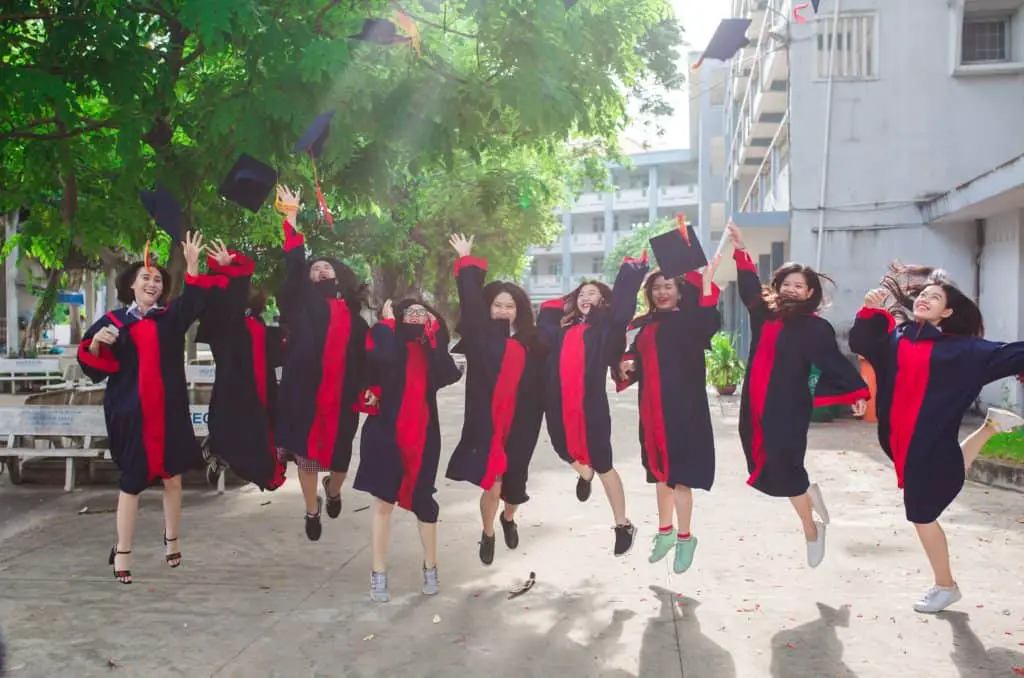Denmark is a country of great academic opportunities at all levels including kindergarten, primary, secondary, collage and university. At all these stages, the country avails to the learners some of the best resources that enable them to get advanced knowledge in their various fields of interest.

It is always for sure that an average student from an institution in Denmark can compete favourably with others from world leading institutions. It means that taking a leap into a Danish learning institution is never a waste of time. The approach to learning in Denmark which is largely evidence-based, interactive and practical means that even the people with learning disabilities get the best experience.
Why Study in Denmark
Denmark goes well into history as among the ancient civilisations in Scandinavia which gave it an opportunity to invent and innovate. The agricultural sector and genomics research institutions in Denmark are among the best in the world which is a testament to the great investment in research.
The same commitment is evident in the Danish school system that focuses on bringing out the best of every student right from their elementary levels. The teachers are very keen on using the excellent teaching aid and technology in identifying each student’s abilities.
Over a period of assessing the student ability at lower levels, the teachers give them personal attention to build on skills. Interestingly, after primary school, the students go to specific high schools or apprenticeship training that match their abilities. The schools are divided into science, social science and technology centres.
Higher Education studies in Denmark
Most people moving to Denmark for studies are masters, PhD and postdoctoral programs. It would be important to know what it means to be a foreign higher education student in Denmark. Just to clear a bit of your curiosity, Denmark receives so many international students which means that you will not be alone.
The programs are taught in well advanced English and the cost of study is low compared to other Scandinavian countries. What makes the higher education studies in Denmark attractive is not only the great learning resources but also the innovative teaching methods.
From the feedback that most foreign students who have had a study experience in Denmark, great standards of living including the public healthcare and subsidised commuter services make the standards of living in the country very attractive.
Masters or PhD in Denmark
Whenever you make the choice to move to Denmark as a master or PhD student, you are sure to get the best learning experience with various practical activities that readies you for the dynamic work environment.
It is important to be proactive in checking which courses offered at the universities best fit your current qualifications and are in line with your future career goals. Again, if your interest is to stay in Scandinavia after studies, your choice of course should be one which is relevant to the problems that need solutions in the region. But of importance is to always try to be the best at whatever you do and you will be recognised.
The PhD courses are wide ranging including business, technology, health, environment, agriculture, engineering and social sciences. At least under each of these subject areas, you will not miss a fitting course.
Apply to study in Denmark
While so many people long to study in Denmark, not so many proceed to take the necessary steps leading to the actualisation of their dreams. So may give up at the initial stages of application because they are either too overwhelmed by the series requirements or are unable to convincingly express their candidature for the competitive slots.
To start with, one has to understand that each program has a limited number of slots for students which cannot be overrun. Once the faculty has the required number, they will not proceed to do any extra admissions even if someone qualifies. It means that at the point of application, you do not want to take any chances.

You have to be so convincing and compelling in your application and supporting documents. Every extra thing that you feel may increase your chances for admission is important to add. Even if you apply to study on scholarship funding, you will have to fast to get admission which is the reason that the application process for study is a do or die as far as studying in Denmark goes.
Application Periods for studies in Denmark
There are typically two application periods in Denmark within a year. The admission periods for postgraduate studies vary across institutions but often fall in September (Autumn semester) and February (Spring semester).
You need to contact the universities directly to check their admission periods though. Again, the admission timelines vary depending on your country of origin. For instance, applicants from EU/EEA and Switzerland have separate timelines compared to those from Asia or Africa. The difference is always intended to allow those travelling from countries outside EU adequate time for processing travel documents.
Process of Application to Study in Denmark
Anyone who has ever made an application to study in Denmark will confess that the process may be so long and somehow demotivating. But, once you have made a personal decision to study there, it is worth staying on course with every step until the last bit. For the sake of simplicity and understanding, the application process can be summarised into 8 main stages:
1. Selecting a University
There are a couple of universities in Denmark for your choice list. You have to be particular with the university and the specific courses of interest. Some universities are known to offer excellence in some fields more than others. Nonetheless, The universities in Denmark are on the list over the top 400 best universities globally which is enough security about your academic investments.
The universities in Denmark include the following:
- The University of Copenhagen (UCPH)
- Technical University of Denmark (DTU)
- Aarhus University
- Aalborg University
- University of Southern Denmark (SDU)
- Copenhagen Business School (CBS)
- Roskilde University (RUC)
2. Read the Admission Requirements
For each and every course or university you select, there are a set of requirements that inform you of how to proceed. Those specific requirements are always written with clear language to communicate all the critical details that may be necessary for you.
Remember, you will not have access to the university support every time you need clarification. So, the requirements should be enough to guide you through. The requirements include qualifications ,admission requirements, and the minimum GPA check.
It is always advisable to always be in time checking the specific course requirements on the university’s website. If anything is unclear, it is good to send a direct email to the university with a clear question.
3. Language Proficiency Requirements
Some courses in Denmark are taught in Danish while others English. Reasonably, most foreign students opt to take courses taught in English. Most universities will require that you document evidence of your ability to use and understand English at least to some reasonable level.
The Universities will usually state on their websites clearly the exact scores they require for English test. The common English test scores required are TOEFL and IELTS. It is important to read and know in which format the university requires the English test scores to be sent to them.
In most cases, they would prefer getting the scores directly from the test centre instead of you submitting a paper copy. Therefore, it would be necessary for you to list the institution where the test scores should be sent at the time you register for the English test.
4. Financing your study in Denmark
As a foreign student, you can be a self-paying student, on a full scholarship, fees waiver or non-fees paying. Typically, students who come from EU/EEA or Switzerland to study in Denmark are not expected to pay tuition fees for undergraduate or postgraduate programs.
International students from outside the EU or Switzerland are required to pay tuition fees averaging from US$8,000 to $21,000 per year depending on which course someone takes.
Since the process of application for admission to Danish universities is generally long and demanding, it would be necessary that you are already aware of how to finance your tuition once the study chance is granted. If your only option for financing is a study grant or scholarship, it may be disheartening when you end up getting a study slot but no funding. Even if you get a study placement, you will have to use your own finances in a few instances like processing travel documents or buying flight tickets awaiting reimbursements on arrival.
What makes Denmark an attractive destination for international students is that while other countries require that you document ability to pay fees and support yourself for the period of studies, you only need to pay first semester tuition fees in Denmark. Apart from that, you are guaranteed up to 20 hours of work per week and a promise of a 2 years establishment card upon completion of studies.
5. Make the application
At this point, you have done a search for a university course and considered your financial abilities. So the next step is to make an application at the national admission portal. You will have to create a profile and use the correct email address where all notifications are sent. It is here at the portal where you will fill out personal information, attach supporting documents and your letter of motivation which basically makes you stand out. Some of the important documents are certificates, transcripts, travel documents, professional certifications and any other extra thing that makes you an exceptional candidate.
In Denmark, you are allowed to make an application for up to 3master programmes per university which then spreads your risks of losing a chance. Because students from outside EU/EEA and Switzerland pay an application fee of up to Euro 100 for every university applied, be careful to limit the chosen university to one.
A response will be sent to your online portal but an alert will also come to your registered email address so that you may log in and check. Every process taken on the university side is accompanied by a message to keep you aware of what next.
6. Apply for Visa
Once your application to study has been assessed and accepted, the next phase is processing of travelling documents in readiness to move. As a practice, the university will begin the process of visa application on their side and then forward the rest for you to complete.
The visa requirements forDenmark are different for students from EU/EEA or Switzerland who are allowed to study, work and live in Denmark for up to three months without documentation. After the three months, they have to process their Danish registration certificate.
7. Danish registration certificate for EU/EEA Students
After three months of being in Denmark as a EU/EEA student, you must have processed your registration and gotten a Danish registration certificate. To get this certificate, you have to present to the responsible authorities your passport, two passport-sized photos and a letter of admission from the university .
Danish Student Visa for people from outside the EU/EEA or Switzerland
For anyone from outside the EU/EEA or Switzerland who is admitted to any program in Denmark, a visa must be given to allow you entry for the start of the studies. Typically, the admitting university will fill in a section of the Visa application to the Danish Agency for International Recruitment and Integration (SIRI) upon which you will have to complete the remaining parts. To be given a study visa, you must meet the requirements including
An acceptance letter from your university
- Proof that you have the financial resources to support yourself (usually around €1,000 per month [around US$1,080])
- A valid passport
- Passport photo
- Visa application fees
8. Get Student accommodation in Denmark
While the university that admits you does not have their own halls of residence for students, they will always work together with housing companies to ensure students get accommodation. The accommodation facilities may sometimes not be enough as they are given on a first come first served basis.
The sooner you apply for accommodation after accepting an admission offer letter, the better it is for you. It is good to take a housing offer within your budget otherwise you end up with too many bills over your head.

